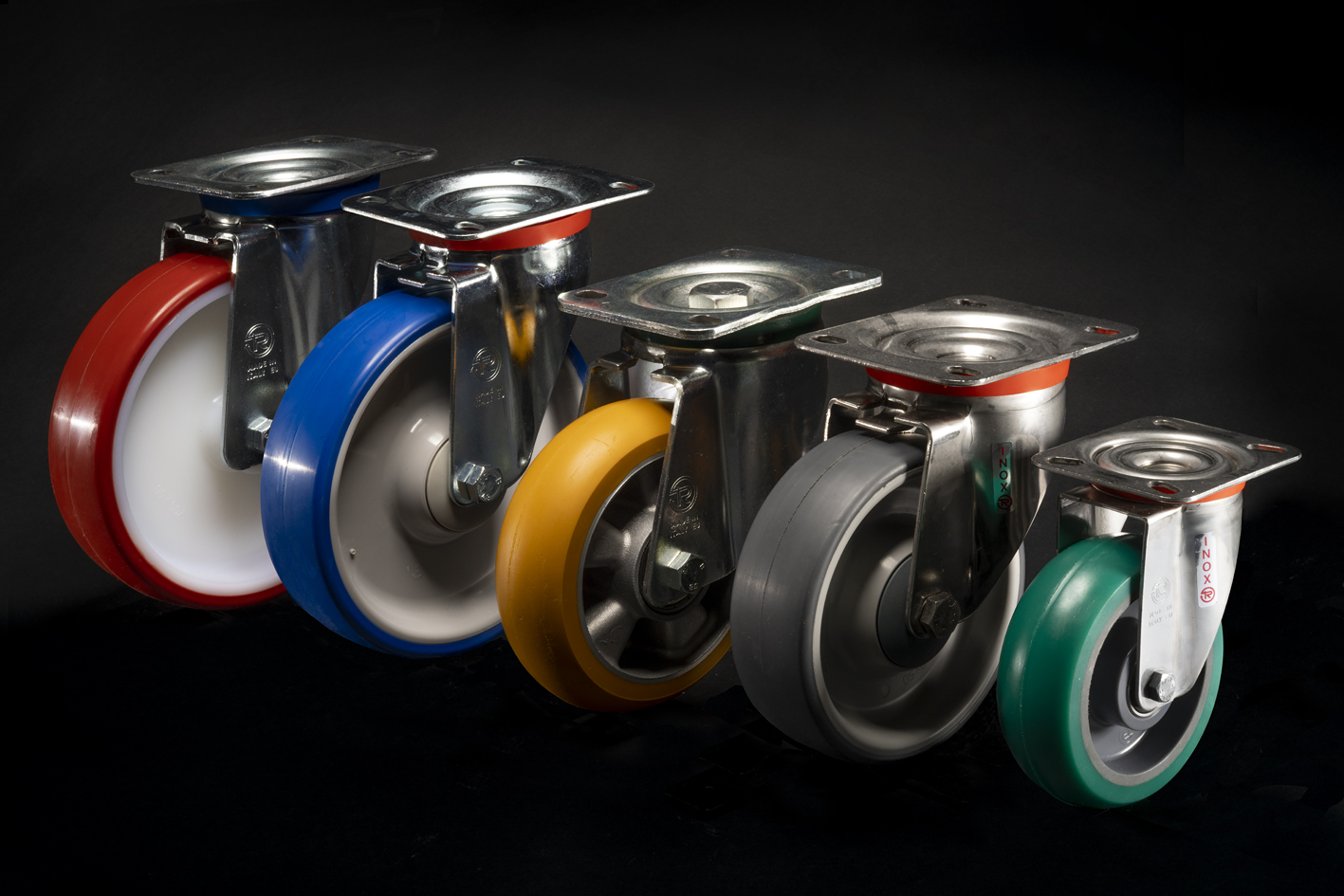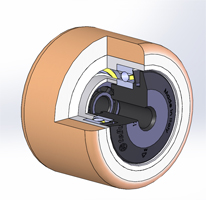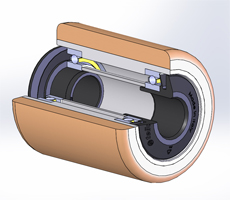06
Aug
Typical problems of industrial wheels and how to solve them
Contents
-
Introduction
-
Nature and conditions of flooring where industrial wheels have to slide
-
Features of the environment where the wheels are used
-
Weight, nature and position of the load on the trolley or equipment
-
Speed and traction means
-
Characteristics of the route to be followed
-
Conclusions
Introduction
When using industrial wheels and castors for trolleys and machinery, it is possible to run into problems and issues of various kinds.
Wheels and castors may deteriorate over time, deform under the weight of the application or become less effective for the purposes as a result of total or partial block of castor rotation.
Why do these factors draw much attention in industrial contexts? Simply because the incorrect behaviour of even a single wheel can damage the application on which it is fitted, the flooring, up to downtime, production line interruptions and, in extreme cases, accidents at work.
Many of these issues can be prevented with a careful choice of the most suitable industrial wheels for every specific application, taking into account the many factors listed below.
Nature and conditions of flooring where industrial wheels have to slide
Within the different company areas, industrial wheels may have to move on the most different surfaces: asphalt, tiles, concrete-resin, outdoor flooring with or without grout lines or other obstacles of the route.
There is a recommended wheel for each flooring. For example, in case of unpaved flooring or with the presence of obstacles, it is recommended to choose wheels with elastic coating and large diameter (greater than 150 mm ed.).
Instead, rigid industrial wheels are preferable in the case of smooth, compact and resistant flooring.
The choice of an incorrect wheel for the flooring on which it is used can lead to dirty and damage the surface, while the use of a wheel with a too small diameter in the presence of grout lines or obstacles can even cause the trolley overturning, resulting in maintenance of the wheels and damaged application.
Features of the environment where the wheels are used
Among other aspects, it is necessary to pay attention to the presence of humidity and aggressive chemicals, or to the peculiar environmental conditions, i.e. the effect of very high or very low temperatures.
In case of humidity and aggressive chemicals, it is recommended to use plastic industrial wheels with stainless steel castors, in order to prevent the oxidation of metal parts and therefore the product deterioration.
For use at extreme temperatures, on the other hand, there are dedicated products, together with components able to withstand excessive heat or cold, maintaining their performance unchanged.
Special attention should also be paid to the far more complex case of a potentially explosive environment, which require even more detailed care in the choice of the most suitable wheels.
Weight, nature and position of the load on the trolley or equipment
It is necessary to carefully consider the load that the industrial wheel will have to bear during its standard cycle of use and choose wheels correctly dimensioned for it, always considering that the loading capacity of the wheel must be re-analysed according to the speed of use and whether handling is continuous or not.
We also remind you that the loading capacity for one wheel is calculated by considering the load weight it will have to transport plus the tare of the trolley itself.
The following pieces of information are important to calculate the loading capacity:
- For a 4-wheel trolley:
- Capacity = (solid load weight + trolley tare weight)/3
- Capacity = (liquid load weight + trolley tare weight)/2
- Dividing by 2 or 3, even in case of a 4-wheel trolley, depends on the fact that not all 4 wheels are always in contact with the floor
Attention: a wheel to which an excessive load is applied deforms under the load, and no longer works properly.
Speed and traction means
If trolleys and equipment with mainly manual handling are to be considered, it is necessary to choose industrial wheels with excellent rolling resistance features, able to help reduce the user effort.
The use of an incorrect wheel, in fact, can result in excessive operator efforts when handling the equipment.
Instead, in case of mechanical handling, it is advisable to choose wheels with polyurethane coating, with metal core and hub with ball bearings, and castors with high impact resistance. All these characteristics make them suitable for high-speed handling (>4 km/h).
If inappropriate choices are made, there is the risk of castor breakage, coating unsticking from the wheel core, and thus also of trolley overturning. All these cases require major wheel maintenance and related costs to be borne by the company.
Characteristics of the route to be followed
Depending on the characteristics of the typical route that the industrial wheel must follow (length, changes of direction, presence or absence of long straight stretches), it may be more or less appropriate to apply a certain number of wheels with swivel or fixed castors to trolleys and other equipment.
Considering a practical example, in case of frequent changes of direction, the application of wheels with fixed castors can lead to excessive operator strain when carrying out the manoeuvres.
Conclusions
The main problems encountered when using industrial wheels and castors involve:
- metal part oxidation,
- coating unsticking from the core,
- product deformation under load,
- trolley unbalance or overturning.
These cases are frequently considered by the user as product “defects”.
Instead, these problems are often due to an inaccurate choice of the industrial wheel and castor assembly for the relevant context of use.
Most of the time, to solve them, it is sufficient to contact the reference companies, to be helped by their consultants in the choice of an item more suitable for the specific case.
Are you interested in knowing the types of industrial wheels best suited to your specific needs, through a dedicated consultation? Contact our experts to get a no-obligation consultation specific to your project.




